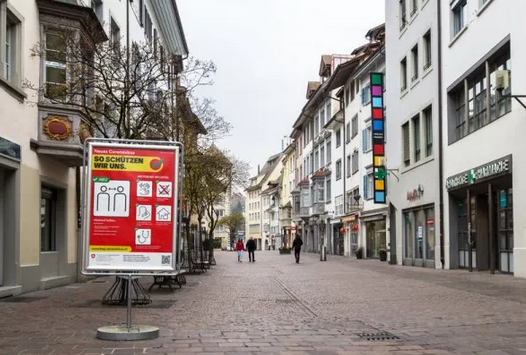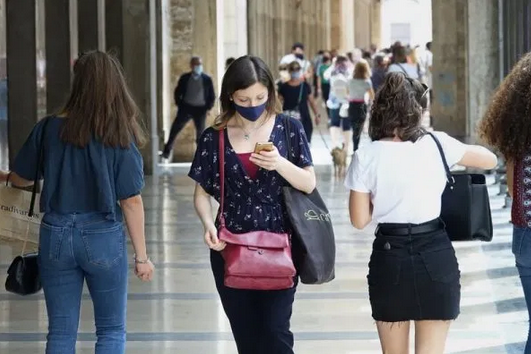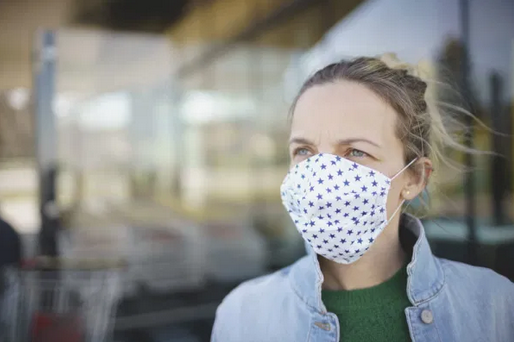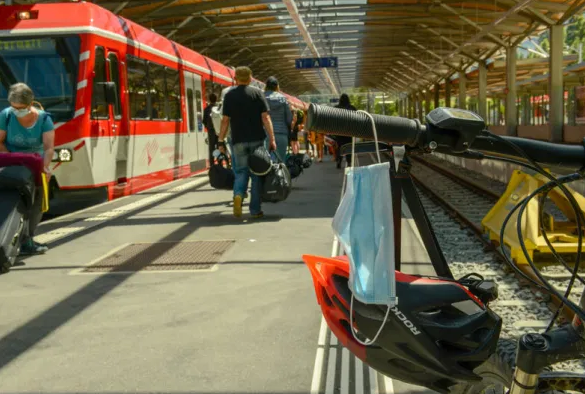© Frankposz | Dreamstime.com On 11 September 2020, Switzerland’s federal government announced that people entering Switzerland after spending time in regions next to the country’s national borders will be exempted from mandatory quarantine requirements should those regions end up with high rates of infection. Cross-border worker are already exempted from quarantine requirements. The announcement marks ...
Topics:
Investec considers the following as important: 3) Swiss Markets and News, 3.) Health, Coronavirus Switzerland, Covid-19 Switzerland, Editor's Choice, Featured, health, newsletter, SARS-CoV-2 Switzerland
This could be interesting, too:
Investec writes Swiss inflation falls further in January
Investec writes Catching ski pass cheats – reactions, fines and worse
RIA Team writes The Importance of Emergency Funds in Retirement Planning
Nachrichten Ticker - www.finanzen.ch writes Gesetzesvorschlag in Arizona: Wird Bitcoin bald zur Staatsreserve?
On 11 September 2020, Switzerland’s federal government announced that people entering Switzerland after spending time in regions next to the country’s national borders will be exempted from mandatory quarantine requirements should those regions end up with high rates of infection. Cross-border worker are already exempted from quarantine requirements.
The announcement marks a significant shift away from the current system which requires anyone arriving in Switzerland from a high risk country to enter a compulsory 10 day quarantine period.
The move follows a sharp rise in SARS-CoV-2 infections in France. The current countrywide infection rate there is 130 cases per 100,000 over the last 14 days. This figure is more than double the 60 per 100,000 14-day rate Switzerland’s Federal Office of Public Health (FOPH) uses to define risk countries from where arrivals must quarantine.
The two central elements of the announced change are exempting border regions from mandatory quarantine requirements, and a shift from defining risk regions as whole countries to a more granular approach of defining them as parts of countries. Switzerland will only apply the more granular region-based system to nations bordering it.
The first of these changes fits better with epidemiological reality. Countries such as Belgium and Germany already employ this more geographically granular approach.
The quarantine exemption for people arriving from border regions reflects the practical situation on the ground. Many people cross these international borders daily as part of their everyday activities.
However, if infection rates take off in these border regions, without quarantine, these Swiss regions will have one less tool to control the rise in cases on their own turf.
Currently, in the French border regions the risk probably swings the other way. The canton’s of Vaud (83)1 and Geneva (53)2 have higher rates of infection over 7 days than the neighbouring French regions of Haute-Savoie (32) and Jura (24). However, the border region of Ain (67) is a red zone. France’s red zones can be viewed here. France considers regions with more than 50 cases per 100,000 over 7 days red zones.
In implementing this measure, the Federal Council said it is continuing to rely on members of the public to act responsibly. It says they should avoid travelling to risk areas if at all possible and spend time in quarantine if they have travelled to these regions.
In addition, the Federal Council has revised the calculation rules for quarantine. Cantons will be able to allow people arriving from high risk countries to include time spent in a country where there is not a high risk of infection before entering Switzerland in quarantine calculations, thus reducing the ten day quarantine period on arrival in Switzerland.
The revised ordinance will come into force on 14 September 2020. At the same time, the list of risk areas will be updated.
Update: on 11 September 2020, Switzerland added further to its list of quarantine regions and included parts of France and Vienna.
1Over 7 days to 9 September 2020. 2Over 7 days to 10 September 2020.
Tags: Coronavirus Switzerland,Covid-19 Switzerland,Editor's Choice,Featured,Health,newsletter,SARS-CoV-2 Switzerland









